SUMMARY
This is AI generated summarization, which may have errors. For context, always refer to the full article.
![[OPINION] Lessons from our Tokyo success](https://www.rappler.com/tachyon/2021/08/tl-tokyo-olympics-lessons-sq.jpg)
We are proud of you!
There is no more apt an introduction for a tribute to our Olympic medalists than expressing how their victories have truly made a mark in Philippine history and every Filipino’s hearts.
The country has earned its largest medal haul in the Olympics ever. With Hidilyn Diaz’s gold medal in women’s weightlifting (55 kilogram category), Nesthy Petecio’s silver in women’s boxing (featherweight category), Carlo Paalam’s silver in men’s boxing (flyweight category), and Eumir Marcial’s bronze in men’s boxing (middleweight category), Philippine history was made in the most unlikely of times and of circumstances. With their determination, hard work, and genius, they made the unlikely a reality.
Of course, other Filipino athletes, such as EJ Obiena and Carlos Yulo, who reached the finals of men’s pole vault and men’s vault, respectively, although they did not bag medals, are part of the Philippine delegation to the Olympics. We know that the fact of qualifying and competing in the Olympics is a feat in itself already for any athlete, especially from a nation such as ours.
Nothing to lose
As we were watching the medal matches of our boxers, especially that of Paalam from Cagayan de Oro who became the underdog in the later part of his gold medal match, we could not help but cheer at our TV screens, seemingly begging the Filipino boxer to give everything he had, for there was nothing to lose as the scorecards were against him at that time. Lo and behold, that last round was adjudged in his favor, but it was not enough to clinch the gold medal.
Not winning the gold medal is beside the point — for us, spectators. We often say that it does not matter, because we are proud of our athletes, nonetheless. This is not a “feel-good” statement of comfort, but we are truly proud of them. This, we can say for sure.
But it surely matters to our athletes. For all Olympians, bringing home a medal is the highlight, if not the peak, of their athletic careers. It signifies the fruit of their labor from years of training and sacrifice. Surreal as it may be, a medal says that they are the best in their chosen sport.
However, being an Olympian from the Philippines goes beyond the medal and the honor. It reaches the deepest motivation and core inspiration of charting one’s life and that of their families. In fact, success in sports has been a gateway to a substantially better life for most of our athletes – a life-changer, if we may say. We see this from the stories of professional athletes such as Manny Pacquiao and of every hopeful young athlete who aspires to receive university scholarships through sports.
There is actually something to lose, and that is why our Filipino athletes pour their hearts into every bout in ways our imagination cannot even comprehend.
Cycles in sports and society
We cannot anymore hide from the fact that this is a symptom of the country’s state of social inequality. That our athletes carry the dual burden of fighting to be the best in their sport and to change the course of their lives might be seen by outsiders — spectators — as added and necessary fuel to their thirst for victory. It adds willpower and grit, to say the least, because so much is on the line. While it may be true in some instances, this mindset is dangerous and oppressive. It deceives people into thinking that all is well.
For instance, all of our most recent Olympic medalists come from the humblest of beginnings. As written in another article on how Mindanao, where all four medalists trace their roots, became an Olympic hotbed, poverty was cited as the source of their immeasurable determination. Diaz and Marcial from Zamboanga City, Petecio from Davao del Sur, and Paalam from Cagayan de Oro did what they could do as children to support their families, both before and after they went into sports. For sure, their families would equally enjoy the rewards that were pledged to them as medalists.
But we ask a particularly challenging question, which is more fundamental than sports funding or infrastructure. Do we maintain the status quo of athletes, fueled by the determination to pull themselves out of poverty and defy the inequality in our society? Or should this cycle be stopped by addressing the very reasons of poverty and inequality at the first place?
Definitely, the culture of dependence, which the keepers of government coffers and private businesses protect, will be gone for good. We are certain that the Philippines will have more world-class athletes if poverty is not a widespread problem anymore.
Yes, we celebrate the strides made by our medalists despite the struggles they faced and continue to face. However, we also hope that we do not settle for this Olympian formula. No future Filipino Olympian deserves to carry this much of a burden for the sake of Filipino pride. We can do better!
Sowing support and reaping rewards
With the record-breaking medal tally comes record-breaking rewards for our medalists as well. Millions of cash and residential incentives from government under R.A. No. 10699, individual government officials, and business community leaders, among others, await Diaz, Petecio, Paalam, and Marcial. Because of this, the issue on incentives due to Mansueto “Onyok” Velasco, boxing silver medalist in the 1996 Olympics, also made the rounds on social media.
Besides the rewards and prizes, the other main question is: who gave their support before the victories we now enjoy?
The unique role of local government units in sports and athlete development are put on the spotlight. All of the medalists owe a huge part of their introduction and initial training to the various programs and opportunities provided by their LGUs to showcase their skills in sports. We do not merely refer to school-based competitions or “meets” that almost everyone is familiar with. We highlight instead the “spaces” for mainstream sports, especially for the youth – spaces such as physical training areas with coaches, and spaces such as community competitions and local festival events. We can see that this became effective in the cases of boxers Petecio, Paalam, and Marcial. These in reality are stepping stones for the promising athletes to be recruited by the national team for further training and conditioning as they prepare for international competitions.
On the private sector side, Manny Pangilinan, who has shown unwavering support to Filipino athletes through the years, announced the setting up of the Center for Sports Excellence that will house facilities and sports professionals such as trainers, psychologists, and nutritionists to mold athletes. He also pitched the idea of a Philippine Business for Sports Development to consolidate private sector involvement, much like the Philippine Business for Social Progress on the development side.
At the end of every Olympic journey, our athletes are put on a pedestal as a sign of determination against all odds; a sign of hope against despair. And in the Tokyo Olympics, a weightlifter and three boxers, two ladies and two men – all from Mindanao – taught us that the best of us come from the poor – and that it is time to fix our society to make it less unequal and less unjust. A country of 110 million plus people and as rich in natural wealth and social capital as ours should produce more gold and other medalists if only it were more just and equal.
We need the kind of hope and bravery that our medalists showed in Tokyo for what is ahead of us as a country, as we collectively fight the pandemic and choose our next leaders in May 2022. – Rappler.com
Tony La Viña teaches law and is former dean of the Ateneo School of Government.
Jayvy R. Gamboa is a student at the University of the Philippines College of Law and an advocate of youth formation.
Add a comment
How does this make you feel?
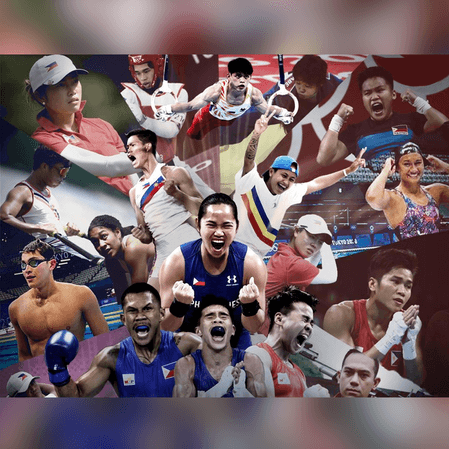
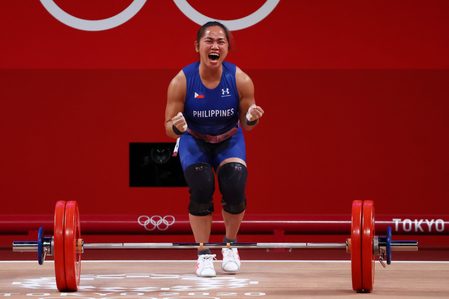
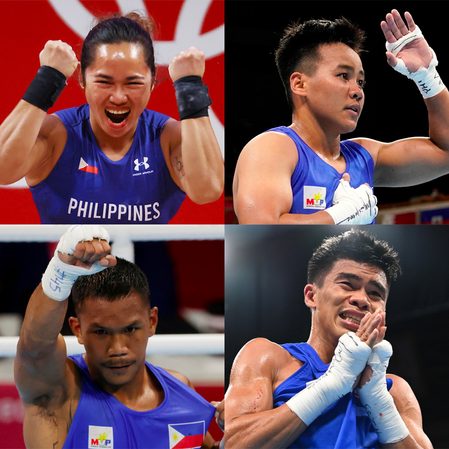







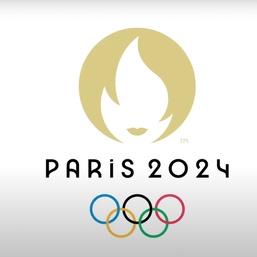
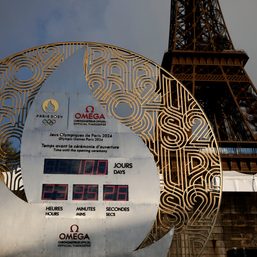
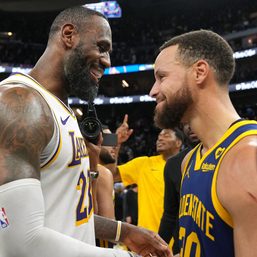
There are no comments yet. Add your comment to start the conversation.